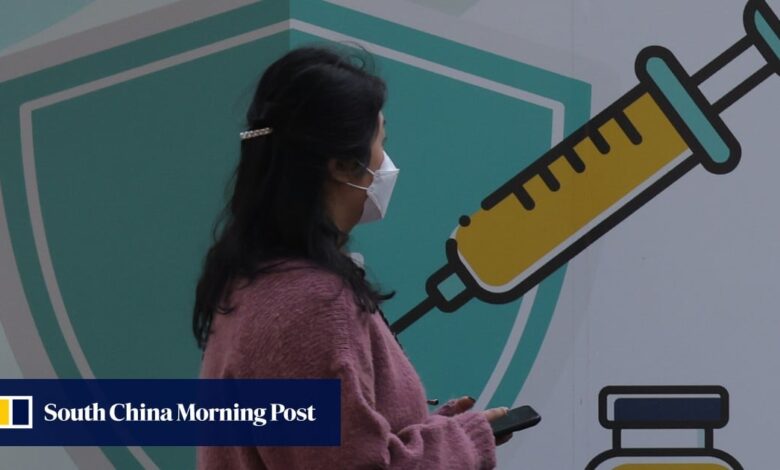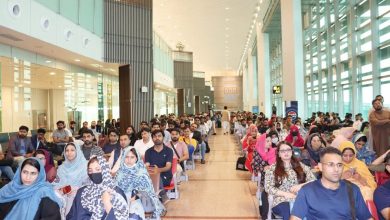Hong Kong coronavirus cases may peak over next few months amid declining antibodies and high hospitalisation rate, pandemic adviser warns

Coronavirus cases may peak in Hong Kong over the next few months, a government pandemic adviser has warned, saying vaccine-induced antibodies providing protection against the virus have declined and the daily hospitalisation rate stands at about 120 cases.
David Hui Shu-cheong, professor of respiratory medicine at Chinese University, said currently the positive rate of nucleic acid testing was 15 per cent based on Hospital Authority data, adding there was a high chance of another peak in cases between this month and December, possibly overlapping with a flu outbreak.
“There are about 100 to 120 cases requiring hospitalisation on a daily basis, with the XBB variant accounting for 98 per cent,” Hui told a TV programme on Sunday.
“Given that the previous peak occurred between April and May this year and antibodies [from vaccines] tend to decline after about six months, another one is estimated to occur between this month and the end of the year,” he said.
He added that Covid-19 jabs administered in the city did not specifically target the XBB strain, while the third-generation vaccines produced by Pfizer and Moderna approved by the Federal Drug Administration in the United States last month used the sub-lineage XBB.1.5 as their primary antigen.
“After vaccination, there will be high antibody levels against the XBB lineage, as well as coverage against the EG.5.1 and BA.2.86 variants currently circulating overseas,” said Hui, who is also a member of the Centre for Health Protection’s Scientific Committee on Vaccine Preventable Diseases.
Hong Kong set for late start to winter flu season in February, expert says
Hong Kong set for late start to winter flu season in February, expert says
The committee will convene a meeting on Wednesday to discuss buying the new generation vaccines.
“I believe we will consider the information provided by pharmaceutical companies and decide which vaccine to buy based on the most critical factor, which is having sufficiently high antibody levels,” Hui said.
He said he believed authorities would continue to provide subsidies for vaccination to high-risk groups, such as elderly residents.
A third-generation XBB shot could serve as a booster jab, Hui added, saying the first and second-generation vaccines still provided strong immune protection, which could prevent severe illness and reduce the risk of death, but they were less effective in preventing infection.

Professor Ivan Hung Fan-ngai, a top infectious diseases expert from the University of Hong Kong, on Saturday said the Covid-19 pandemic had disrupted the seasonal flu cycle and urged high-risk groups to get inoculated against the latter as soon as possible.
He explained the city was in the final stage of the summer flu season, with the winter outbreak expected to begin in February, which was later than usual, and end in April next year.
Scientists who helped develop mRNA Covid vaccines awarded Nobel Medicine Prize
Scientists who helped develop mRNA Covid vaccines awarded Nobel Medicine Prize
Hui on Sunday said the arrival of the flu season in the city had become harder to predict due to the lifting of the mask-wearing mandate and the return of air travel.
“In the past, flu cases were less common between April and June, but this year there have been more occurrences,” he said.
The pandemic adviser added flu cases began increasing in mid-August this year, with a 9.2 per cent infection rate and 14.8 per cent last week, indicating an upwards trend. He said he believed the number of cases had not yet peaked.
A large-scale winter flu outbreak typically occurred between January and March in the city and it was more severe than the summer season, he noted.
“Now it’s October, a good time to get vaccinated. After receiving the flu shot, it takes about two weeks to develop antibodies, which can provide protection for at least six months,” Hui said.
He stressed that jabs could reduce the severity and risk of death, urging residents, especially those in the high-risk group, to get inoculated under the Government Vaccination Subsidy Scheme.





